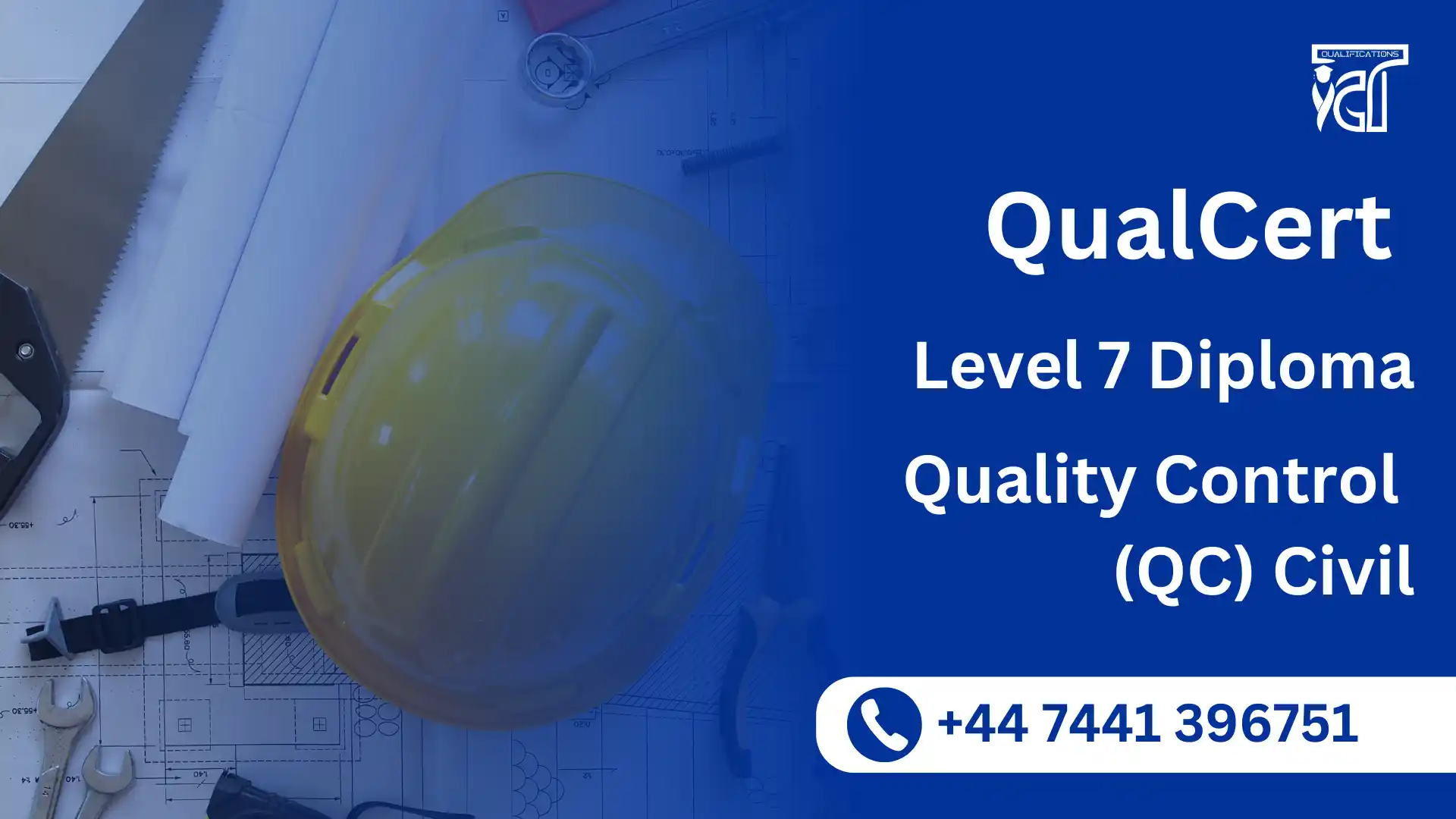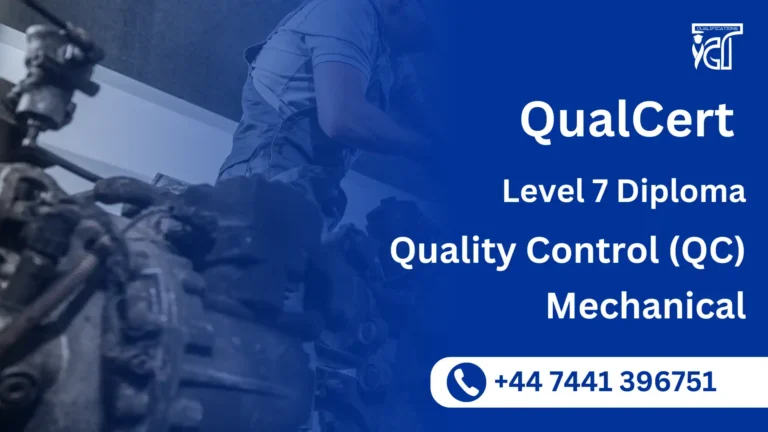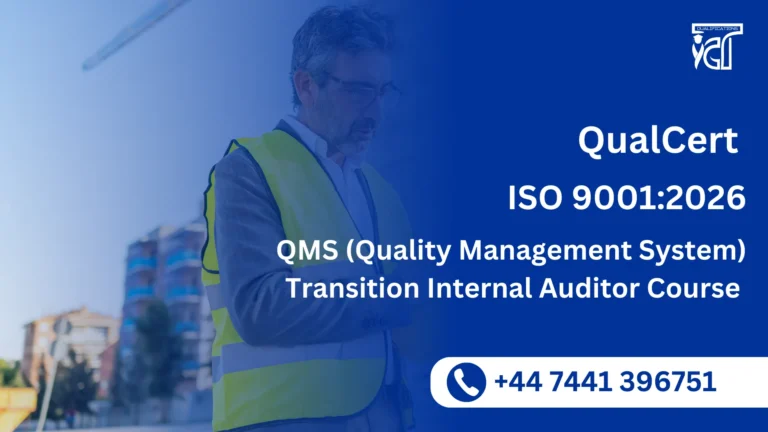The QualCert Level 2 Diploma in Quality Control (QC) – Civil is an entry-level qualification designed to introduce learners to the basic principles and practices of quality control within the civil engineering and construction industries. This course provides a practical understanding of how quality assurance processes are applied on-site, with a focus on material checks, documentation, inspection support, and adherence to construction standards.
Ideal for beginners and support staff in construction environments, this diploma equips learners with the foundational knowledge needed to assist QC teams, carry out basic inspection tasks, and recognize quality-related issues in civil projects. It bridges the gap between general site labor and quality-focused roles, making it a valuable step for individuals looking to start a career in construction quality control.
Whether you are new to the industry or looking to enhance your current role with essential quality knowledge, the Level 2 Diploma offers a practical and accessible route into the field of civil quality control.
QualCert Level 2 Diploma in Quality Control ( QC ) Civil
The QualCert Level 2 Diploma in Quality Control (QC) Civil is structured to provide a comprehensive foundation in quality control practices specific to civil engineering. Below is the qualification structure, including the Total Qualification Time (TQT) 210, Guided Learning Hours (GLH) 150, and 42 Credits associated with the program.
| Unit Ref# | Unit Title | Credit | GLH | TQT |
| QC090008 – 1 | Quality Standards in Civil Engineering | 7 | 25 | 35 |
| QC090008– 2 | Material Performance and Durability Testing | 7 | 25 | 35 |
| QC090008– 3 | Inspection Strategies and Defect Analysis | 7 | 25 | 35 |
| QC090008– 4 | Role of QC in Project Management | 7 | 25 | 35 |
| QC090008– 5 | Safety and Regulatory Compliance | 7 | 25 | 35 |
| QC090008– 6 | Data Analysis for QC Decision-Making | 7 | 25 | 35 |
GLH (Guided Learning Hours) and TQT (Total Qualification Time) are terms commonly used in vocational qualifications to help define the amount of time a learner is expected to spend on their studies.
1. GLH (Guided Learning Hours)
GLH refers to the number of hours a learner spends being directly taught, supervised, or supported during their course. This includes the time spent in activities such as:
- Classroom instruction
- Practical workshops
- One-on-one tutoring or mentoring sessions
- Online learning sessions with tutor support
In other words, GLH represents the time that learners are actively engaged with their instructors or learning activities.
2. TQT (Total Qualification Time)
TQT represents the total amount of time a learner is expected to invest in completing a qualification, including:
- GLH (Guided Learning Hours): Time spent on direct learning, as explained above.
- Self-Directed Learning: This includes time spent on independent study, research, assignment completion, preparation for exams, and any other work the learner does outside of direct teaching hours.
TQT is a broader measure that includes all the time required to achieve the qualification. It helps learners and employers understand the overall commitment required for the qualification.
Key Differences Between GLH and TQT:
- GLH focuses on direct learning with guidance or supervision.
- TQT includes GLH as well as independent study time and other learning-related activities.
Example:
If a qualification has a TQT of 600 hours and a GLH of 250 hours, it means the learner should spend 250 hours in direct learning (classroom, online, or tutor-led sessions) and 350 hours on independent study or research.
1. Understanding Quality Standards in Civil Engineering
- Explore key quality control standards and regulations relevant to the civil engineering and construction sectors.
- Learn about industry-specific protocols and procedures that guide quality assurance on-site.
- Recognize the importance of complying with established standards to ensure the reliability and safety of construction projects.
2. Material Testing for Performance and Durability
- Discover various methods used to test the strength, performance, and durability of construction materials.
- Understand how to assess material suitability for long-term use in civil engineering applications.
- Gain the ability to interpret basic test results and apply findings to quality control procedures.
3. Inspection Techniques and Defect Identification
- Learn to plan and conduct basic inspections of construction materials and site activities.
- Identify common types of construction defects and understand their underlying causes.
- Apply corrective and preventive measures to address issues and maintain quality standards on-site.
4. The Role of Quality Control in Project Management
- Understand how quality control supports effective construction project delivery.
- Learn how QC integrates with project planning, scheduling, and execution.
- Evaluate how proper quality management can influence project costs, timelines, and outcomes.
5. Safety and Regulatory Compliance in Construction
- Recognize essential safety practices and legal compliance requirements in the construction industry.
- Learn how to apply these regulations in everyday quality control operations.
- Understand the link between regulatory compliance and high-quality, safe construction environments.
6. Data-Driven Decision Making in QC
- Develop basic skills in collecting and analyzing data related to construction quality.
- Learn how to use data insights to support quality improvement and troubleshooting.
- Make more informed decisions by using data to evaluate site performance and material quality.
Solid Introduction to Civil Quality Control
Gain a strong foundation in the essential concepts and practices of quality control within the civil engineering and construction sectors.
Hands-On Knowledge of Materials and Testing
Learn how to assess construction materials for strength and durability through basic testing techniques, helping ensure the safety and reliability of projects.
Basic Inspection and Defect Analysis Skills
Acquire practical skills in performing site inspections, identifying common construction defects, and understanding their root causes.
Improved Awareness of Safety and Compliance
Understand key safety regulations and compliance requirements that are crucial to maintaining legal and professional standards on construction sites.
Support for Project Quality Management
Learn how quality control contributes to smoother project planning, better resource management, and successful project delivery.
Data Awareness for Informed QC Decisions
Gain introductory skills in analyzing simple QC data to assist in identifying issues and supporting quality improvements.
Enhanced Employability
Develop job-ready skills for entry-level roles such as QC Assistant, Site Quality Helper, or Materials Testing Support, making you valuable to employers in the construction industry.
Pathway to Further Qualifications
This diploma serves as a stepping stone to more advanced certifications in Quality Control, Civil Engineering, or Construction Management (e.g., Level 3 and Level 4 Diplomas).
Applicable Across Multiple Civil Projects
The knowledge gained is relevant across various construction environments—residential, commercial, roadworks, and infrastructure development.
Professional Confidence and Practical Competence
Boost your confidence to contribute meaningfully on-site by understanding how quality control supports project success and safety.
The QualCert Level 2 Diploma in Quality Control (QC) – Civil is designed for individuals who are new to the construction industry or looking to transition into quality-related roles within civil engineering. This course is suitable for learners who:
- Are New to the Construction or Civil Engineering Field
– Ideal for school leavers, fresh entrants, or individuals with no prior technical experience who want to start a career in quality control or site inspection. - Have a Basic Educational Background
– Learners with a secondary school certificate or equivalent qualification seeking practical, job-oriented training. - Aspire to Work in Quality Control Roles
– Individuals interested in entry-level QA/QC positions such as Quality Assistant, Site Helper, or Materials Tester in civil construction projects. - Are Currently Employed in General Site Roles
– Site laborers, helpers, or assistants who want to upskill and transition into more technical or quality-focused responsibilities on construction sites. - Prefer Practical, Hands-On Learning
– Learners who benefit from real-world examples, demonstrations, and task-based learning rather than purely theoretical study. - Seek a Recognized Industry Qualification
– Those looking for a formal certification to improve their employability and credibility in the construction and civil sectors. - Have an Interest in Safety, Compliance, and Standards
– Individuals who value work quality, construction standards, and safety protocols and want to contribute meaningfully to project performance. - Intend to Progress Further in the Field
– Learners planning to continue their professional development with higher-level diplomas (Level 3 and above) in Quality Control or Civil Engineering.
Entry Requirements
Register Now
Qualification Process
Qualification Process for the QualCert Level 2 Diploma in Quality Control (QC) Civil
- Self-Assessment:
Begin by evaluating your eligibility to ensure you meet the qualification requirements, including work experience, knowledge, and language proficiency. - Registration:
Complete your registration by submitting the required documents, including a scanned copy of a valid ID, and paying the registration fee. - Induction:
An assessor will conduct an induction to confirm your eligibility for the course and explain the evidence requirements. If you do not meet the criteria, your registration will be canceled, and the fee will be refunded. - Assignmnets & Evidence Submission:
Provide all assignmnets and the necessary evidence based on the assessment criteria outlined in the course. If you are unsure of the required evidence, consult with the assessor for guidance on the type and nature of evidence needed. - Feedback and Revision:
The assessor will review your submitted evidence and provide feedback. Evidence that meets the criteria will be marked as “Criteria Met,” while any gaps will be identified. You will be asked to revise and resubmit if needed. - Competence Evidence:
Submit final evidence demonstrating that all learning outcomes have been met. This evidence will be marked as “Criteria Met” by the assessor once it is satisfactory. - Internal Quality Assurance (IQA):
The Internal Quality Assurance Verifier (IQA) will review your evidence to ensure consistency, quality, and compliance with standards. - External Verification:
The IQA will submit your portfolio to QualCert External Quality Assurance Verifiers (EQA) for final confirmation. The EQA may contact you directly to verify the authenticity of your evidence. - Certification:
Upon successful completion of all checks, QualCert will issue your official certificate, confirming that you have attained the QualCert Level 2 Diploma in Quality Control (QC) Civil.







